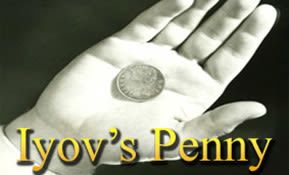
Emor: Reb Mottel
Finally, Reb Mottel had overextended himself with his wholesalers to the point that he had to sell all his property to repay his debts. Only his modest house...

Parshat Emor
"The tenth of this seventh month [Tishrei] will be a Day of Atonement [but it will only atone for those who return to God]. It is a holy celebration [Yom Kippur] for you when you must fast. It is a Day of Atonement, for you to be atoned before God your Lord." (Leviticus 23:27)
* * *
And then there was the time that Reb Mottel, a devoted chassid of the Baal Shem Tov that lived in the holy community of Polonnoye, had a serious financial problem. He owned a modest grocery store and was known for being generous in extending credit to the poor and providing them with their needs.
As a businessman, Reb Mottel had his ups and downs. But even during difficult times, he never stopped providing groceries on credit to needy Jews. Finally, Reb Mottel had overextended himself with his wholesalers to the point that he had to sell all his property to repay his debts. Only his modest house remained his. In desperation, he went to the Baal Shem Tov for advice and a blessing.
After hearing of his plight, the Baal Shem Tov suggested to him that: "I understand that the arrendeh of the city (a lease given by the Poritz [Polish landowner] to produce and sell whiskey) is available. Submit a letter to the Poritiz asking to be granted the arrendeh, and be sure that you praise the Poritz for his generosity. When the Poritz has a hearing regarding the matter, do not go. Even if he sends for you several times still do not go. Wait until he sends a carriage for you before you agree to go. When you receive the arrendeh, turn your house into an inn and rent your rooms to weary travelers."
Several different people tried to get the arrendeh but the Poritz could not come to an agreement with any of them. Finally he became so aggravated with the whole thing that he gave the matter to his wife to handle. When she read Reb Mottel's letter asking to take over the arrendeh, she was taken by his flattering words about the Poritz. When she sent a message to Rabbi Mottel that he should attend a hearing on the matter, he refused to go saying that he did not feel well and could not walk. The Poritz's wife sent a second messenger urging Reb Mottel to please attend, but he still refused. Finally, she sent her personal carriage and Reb Mottel agreed to go as the Baal Shem Tov had instructed him.
When the Poritz's wife offered him the arrendeh, he refused explaining that he did not have the means to distill whiskey.
Not to be dissuaded, she pleaded with him to take the arrendeh. Finally she said: "I will give you several hundred sacks of grain at no cost so you can distill whiskey, if you will just agree to rent the arrendeh." Finally, Reb Mottel agreed to the delight of the Poritz's wife.
In the end, Reb Mottel made a handsome profit on his new venture and continued to be successful running his small inn. He was able to be even more charitable than before.
On another occasion Reb Mottel had a business opportunity that involved cattle. He consulted with his Rebbe, the Baal Shem Tov, on the matter. The Baal Shem Tov advised him: "Reb Mottel, do not trade in oxen." But the deal seemed like such a great opportunity to make a lot of money that Reb Mottel forgot the Baal Shem Tov's advice. In a short time, he lost all of the money he invested in the business of trading oxen.
On several other occasions, he sought the Baal Shem Tov's advice and blessings in various other business ventures. Each time, for good business reasons, he didn't follow the Baal Shem Tov's advice and ended up losing his money in each case.
In one deal, he not only lost all the money he invested, but ended up owing a large amount to the local Poritz.
The Poritz was enraged when Reb Mottel didn't promptly pay his debt. "If that Reb Mottel doesn't pay me, I'll shoot him!"
When Reb Mottel heard about the Poritz's threat, he became terrified and went to Mezibush planning to stay near the Baal Shem Tov for all of the High Holy Days (Rosh Hashanah to Simchat Torah). In the meantime, he received an official summons by a court to appear with the Poritz to settle the matter. Not having the money due, Reb Mottel replied that he couldn't repay the debt because he simply did not have any money.
On Yom Kippur, Reb Motel prayed his heart out given the dire situation he thought he was in. Then, the day after Yom Kippur, early in the morning, the Baal Shem Tov asked Reb Mottel to accompany him to the mikveh. Right after the morning prayers, the Baal Shem Tov told Reb Mottel to return home. Reb Mottel was deathly afraid. "But Rebbe, what will happen when I go home?"
The Baal Shem Tov replied: "Do not fear and do not lose resolve" (Devarim 1:21).
Reb Mottel returned home and celebrated the holiday of Succot with his family. Even after the assurance by the Baal Shem Tov, he could not stop worrying about what would happen.
During the holiday, he happened to be staring out of the window when he saw a group of about fifty herdsmen called Haidamaks returning home from a trip. They had searched throughout the town of Pollonoye for lodging without success. When they came to Reb Mottel's inn, he graciously welcomed them and somehow managed to find room to house all of them. He also provided them with ample food and whisky. When his guests drank all the whiskey, he went to his next-door neighbor and bought two additional barrels of brandy to serve his guests. Soon, those two barrels of brandy were empty. With the money he earned from selling those two barrels, he purchased more brandy from another neighbor. This time, he made so much money that he was able to purchase a large cask of brandy. The herdsmen were able to eat and drink to their fill. For the next several days, they stayed at his inn, drinking large amounts of brandy and eating day and night. Even before they departed, he had earned enough money to pay his debt to the Poritz.
Soon after the last of the herdsman had left Reb Mottel's inn, the Poritz arrived on his horse with his hunting rifle in hand. Banging on the door he screamed: "Reb Mottel, give me my money or else!"
Reb Mottel hesitantly opened the door. "Master, I have the money I owe you. Please come in and have a glass of brandy."
As soon as the Poritz came into the inn and sat down, Reb Mottel placed a sack of gold coins before him on the table. "Here is the full amount I owe."
The Poritz calmed down as soon as he saw the large sack of gold coins. While sipping from the glass of brandy in his hand, he spoke. "Reb Mottel, let's not have any hard feelings between us. To be honest, when I heard that you were not able to pay your debt, I became very upset. But now I see it was a lie. Please keep all of your money as a no interest loan and continue to run your inn." But Reb Mottel refused to keep the money. He remembered learning in the Talmud that one should not rely on miracles.
Later, when Reb Mottel told his Rebbe the whole story, the Baal Shem Tov said: "This nobleman was very fortunate, because, if you had not obtained the money, he would have had to die."
And so it was.
***
Tzvi Meir Cohn attended Yeshiva Hadar Hatorah in Crown Heights, Brooklyn after completing his university studies in Engineering and Law. While studying at the Yeshiva, he discovered a deep connection to the stories and teachings of the Baal Shem Tov. His many books about the Baal Shem Tov can be found in the Breslev Store. He can be contacted at howard@cohnpatents.com.











Tell us what you think!
Thank you for your comment!
It will be published after approval by the Editor.